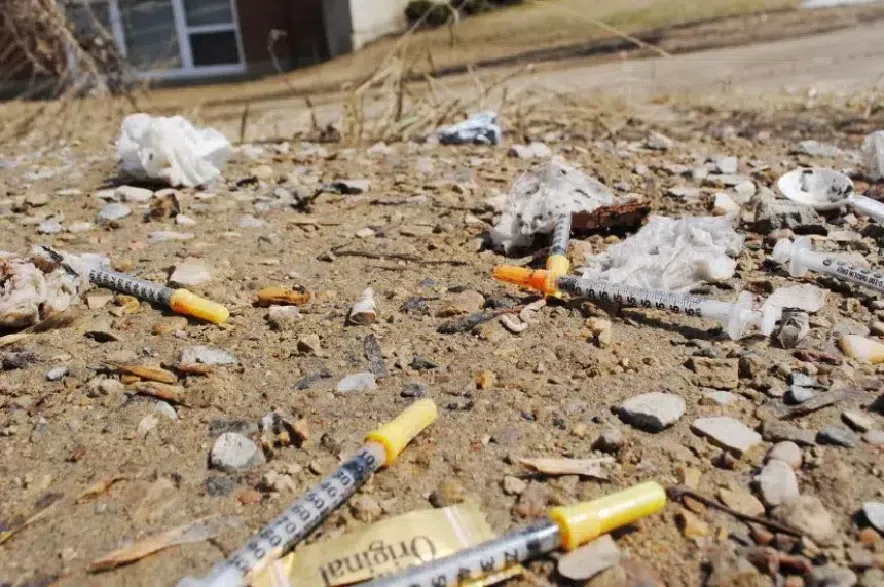Justin Ritco says long wait times for addiction treatment in Saskatchewan are putting lives at risk.
The Regina man has spent the past few weeks trying to help a friend access addiction treatment, but he said he quickly discovered that the process was “a lot harder than it seems.”
Read More:
- ‘Libraries are not treatment centres’: CUPE, NDP call for addiction support
- NDP calls for Sask. govt. transparency over Lumsden addictions facility
- Saskatchewan announces measures to deter production of fentanyl, methamphetamine
“I thought if you want help – you need help – and you admit to needing help, that you can go in and there are services available,” he said.
Ritco said he invited his friend to stay with him to start the recovery process while he searched for treatment options. His primary contact was the addiction treatment program in Regina, but Ritco said he was told that the city’s facility had a two-week waiting list, with 28 people already in line.
He said wait times for detox services were around two months in Lumsden, up to three weeks in Moose Jaw – with a 30-person waiting list – and 45 days in Saskatoon.
“What we learned is that in order to get into treatment, you have to detox first,” Ritco said, adding that his friend had no choice but to undergo detox at home.
“It can be extremely dangerous for some people to withdraw off of heavy drugs, and especially after prolonged use,” Ritco said.
Ritco said he was shocked to learn that without immediate access to detox, the only advice he received was for his friend to continue using drugs.
“This individual wanted to get clean and wanted to stop,” he said. “They committed and were ready to put their entire life on hold to do this… This did not seem like a very good solution.”
After a week, Ritco said there were 14 people ahead of his friend on the waiting list. After two weeks, he still hadn’t heard back from the treatment centre.
“We tried our best to keep them clean, but unfortunately they relapsed and we haven’t heard from them since,” he said.
“It makes you feel helpless,” Ritco said of the situation. “You’re really scared, especially with this overdose crisis… This could be their last chance.”
Ritco said he believes the system is not designed to effectively help individuals seeking help to overcome their addictions.
He said he looked for other options and found a two-week outpatient program with counsellors that he was willing to pay around $2,500 for. However, Ritco said proceeding with the outpatient program would have meant waiting even longer for the inpatient program.
“It was really frustrating,” he said. “You couldn’t even pay your way into (receiving) help.”
Ritco said he wants to see more detox facilities and treatment beds for those seeking to break their addictions.
“I think the story would have ended differently if we could have got them into a detox facility and gotten them help right off the bat,” he said.
The call for improvements to detox access comes in the midst of an overdose crisis in Saskatoon, and has been echoed by organizations such as Prairie Harm Reduction, which operates a supervised consumption site.
Since March 1, The Saskatoon Fire Department has responded to 509 overdose incidents or suspected opioid poisonings, and 816 since the start of 2025.
Last year, the provincial government announced an investment in 500 addiction treatment spaces, but only 221 have opened so far.
Lori Carr, Saskatchewan’s minister of mental health and addictions, said on Tuesday that the addiction treatment spaces are part of a five-year plan, and the province expects to add more beds in the near future.











